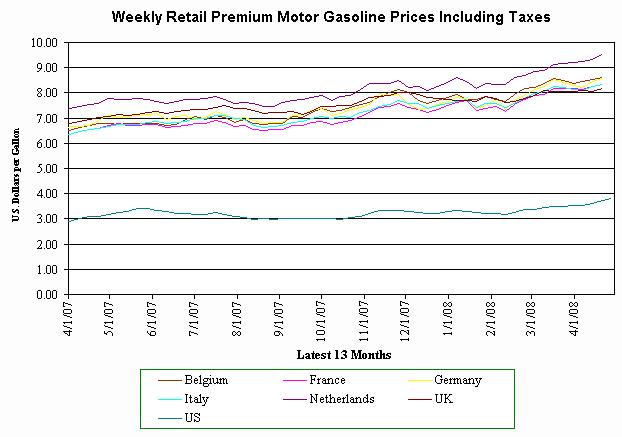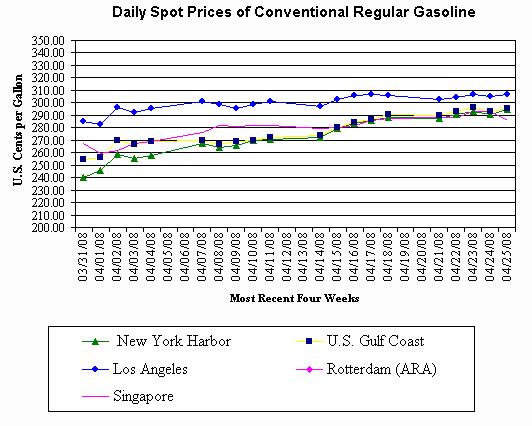Remember Y2K? If you took the media and politicians seriously, this sure did seem like it was going to big a big apocalyptic deal (see survey in the postscript about economic depression and civil insurrection). Until it wasn't.
Odd Citizen points to an interesting study on this topic. The author links this
Australian study looking retrospectively at the Y2K scare, trying to understand
why an irrational collective hysteria developed that allowed for no skepticism
(seem familiar). The whole thing is interesting, but here is the money
quote:
From the perspective of public administration, the two most
compelling observations relate to conformity and collective amnesia. The
response to Y2K shows how relatively subtle characteristics of a policy problem
may produce a conformist response in which no policy actors have any incentive
to oppose, or even to critically assess, the dominant view. Moreover, in a
situation where a policy has been adopted and implemented with unanimous
support, or at least without any opposition, there is likely to be little
interest in critical evaluation when it appears that the costs of the policy
have outweighed the benefits.
The article is written without any reference to current
climate issues, but wow, does this sound familiar? It is a dead-on description of what is occurring with global warming.
The author also goes on to discuss public choice theory and why it is not necessarily a good explanatory model for the Y2K scare. He argues that a better explanation was the asymmetry of blame:
Individuals and groups who argued for a 'fix on failure' approach stood to benefit only modestly if this approach avoided unnecessary costs, but faced the risk of blame in the event of significant system failures attributable (accurately or otherwise) to Y2K related problems. Conversely, it was evident in advance that there was little risk of loss to individuals who advocated comprehensive remediation. The absence of any serious Y2K problems could always be attributed to the success of the remediation program.
The asymmetry of incentives was amplified by the possibility of litigation, particularly in the United States and, to a lesser extent, in other English-speaking countries. The reliance of the United States on tort litigation as a method of compensating those experiencing adverse outcomes of various kinds produces a strong bias in favour of 'defensive' expenditures. In particular, jurors have been highly unsympathetic to individuals and organisations that have chosen to disregard known low-probability risks.
The special characteristics of the Y2K problem were ideally suited to produce this kind of reaction. On the one hand, the problem was both widespread and comprehensible to non-experts, such as potential jurors. On the other hand, if 'embedded systems' are disregarded, the Y2K problem differed from most other computer 'bugs' in that a complete solution was feasible, though very expensive.
In these circumstances, litigation against organisations that had failed to undertake comprehensive Y2K remediation, and experienced any form of system breakdown in early 2000, was virtually guaranteed of success. By contrast, the risk of blame being allocated to organisations that overspent on Y2K remediation was perceived to be minimal. The absence of litigation or other processes for the allocation of blame in the aftermath of the Y2K non-event shows that this perception was accurate.
A rough parallel to this in the global warming world is the apparent ease of assigning blame for CO2 emissions to energy producers and car manufacturers (despite the fact that it is all of us who uses this energy and buys these cars) vs. the reluctance of media and others to quantify and assign blame for reductions in wealth and economic prosperity that might result from CO2 limitations.
Postscript: One other thing that is interesting to me as a libertarian: I often point out that the political parties are a joke, a mish-mash of shifting political positions that has little to do with deeply held theories of government and more to do with branding and populist electioneering. The Y2K-Climate comparison caused me to find a good example. In 1999, it was the Republicans using the Y2K issue as a club on the Democrats, arguing that the Clinton Administration, and Al Gore in particular, were ignoring this critical end-of-the-world crisis and that the government needed to be doing more. Really. Just check this out from Dec, 1999:
Last year, The National Journal devoted an entire issue to the subject, with headlines such as "The Big Glitch" and "Sorry, Al, This Bug's for You." In the special issue, Neil Munro cites a survey of industry and government executives and
programmers concerning potential fallout from the millennium bug, showing that 70 percent
anticipated a negative effect on the economy, with 10 percent of respondents not ruling
out the possibility of economic depression and civil insurrection.
With a technology problem of this magnitude on the national horizon, where was the leadership of the nation's No. 1 techno-nerd and self-proclaimed creator of the "information superhighway," Vice President Al Gore?
Gore's familiarity with and personal interest in technology, specifically computer technology, makes suspect his long silence on the Y2K issue.
In his biography, "Gore: A Political Life," Bob Zelnick writes that Gore "had nothing to say during the first five-and-a-half years of his vice presidency
about the biggest problem in the history of high-tech America."
Let the record show that I was a Y2K skeptic before I was a climate skeptic.
I may be making common cause with some Republicans on the climate issue at the moment, but I don't trust them. In fact, already we see McCain jumping on the climate bandwagon (as he does with every populist issue -- he believes in nothing) and I have a strong sense GWB may dive into the climate fray quite soon.


 The forest must be adjacent to U.S. Forest Service Land;
The forest must be adjacent to U.S. Forest Service Land;


